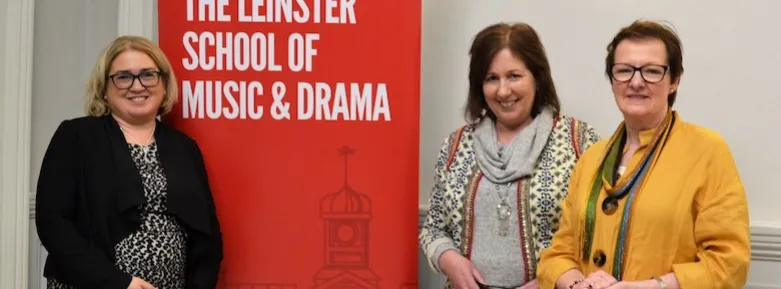The LSMD Centre for Teaching: The Exam Corner

Here at The Leinster School of Music & Drama, we are firm believers in guiding teachers in the right direction. By incorporating elements of the exam into each lesson, your student will feel at ease coming up to their exam.
Each lesson should be fun and engaging for both the student and the teacher, so by having a plan to work with you can bring out the best in each student. With careful planning of work throughout the year, you can prepare your student in the run up to an exam with no surprises.
Music Teachers: Introduce sight reading from Day One with fun and enjoyable pieces from the LSMD own choice repertoire, musical sentences, or get creative and compose your own! By composing their own pieces, students learn how to draw notes on lines and spaces and become familiar with the clef.
Our examiners believe that sight reading needs daily practice and can be done in a fun way. On the day of exams, the most common mistakes happen from candidates "mixing up the clefs, mixing up lines with spaces, locating Middle C and not knowing where to begin." Before beginning to play, our examiners advise candidates to take their time and identify the "key signature, time signature, intervals, note values and rests." Remind your students to have a silent run through on the keys with their fingers and take a breath.
In order to combat nerves, our Piano Teacher Handbook and Piano Examination Syllabus outline the requirements for each grade.
Speech & Drama Teachers: When preparing students for their Effective Communications examinations, students should be encouraged to research their chosen topic and prepare their project in advance. The project should consist of visual (e.g. pictures and diagrams) and written material.
Our examiners encourage candidates to include visual aids in their projects so that they can refer to these in their discussion. Candidates should be very familiar with their projects and communicate their work to the examiner. Students should use visual aids to help, small notes and be sure to use vocal inflections to engage their audience.
Be sure to plan the project and include "an introduction, middle section and conclusion." Our Speech, Drama and Communications Syllabus and Errata Booklet outline the requirements for each grade and act as a guide for teachers.
Brought to you by The LSMD Centre for Teaching - like and share our Facebook page to keep up to date with The Leinster School of Music & Drama.
